Recent grants received
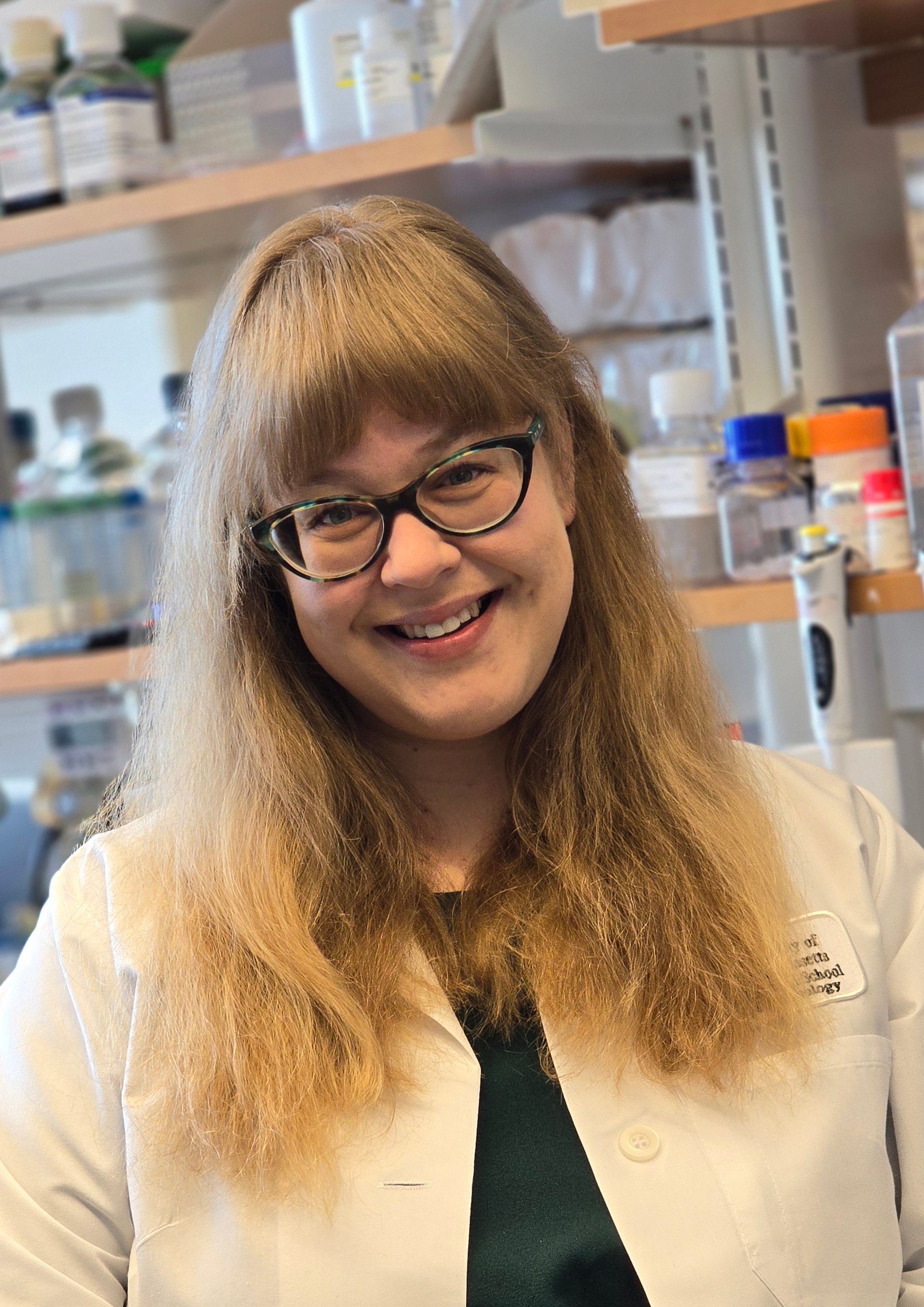 Karin Meijboom, PhD, of Brown Lab received the K99/R00 Pathway to independence, one million dollar grant, which consists of two years of mentored research by Dr. Brown and by Dr. Sontheimer, and three years to start her own independent research at another university.
Karin Meijboom, PhD, of Brown Lab received the K99/R00 Pathway to independence, one million dollar grant, which consists of two years of mentored research by Dr. Brown and by Dr. Sontheimer, and three years to start her own independent research at another university.
Advanced base and prime editing strategies to correct common ALS-causing SOD1 mutations is a proposal to develop and validate somatic gene correction strategies for common mutations in familial SOD1-ALS in vivo, using base and prime editing. This project will explore new methods for somatic gene correction that are broadly relevant to many genetic disorders of the CNS.
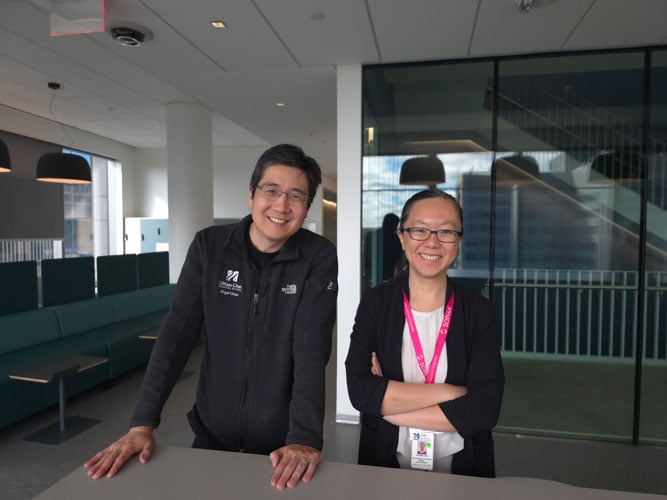
Rigel Chan, PhD, and Elaine Lim, PhD, of Chan Lim Lab, have received an NIH grant award to fund a five-year research program designed to evaluate the interactions between environmental toxicant exposures (such as heavy metals, specifically cadmium) and Alzheimer’s disease-associated genetics, by using donor-derived cerebral organoid models.
 The Duchenne Muscular Dystrophy (DMD) Program has received a renewed Muscular Dystrophy Association (MDA) Center award of $90,000 over the next three years.
The Duchenne Muscular Dystrophy (DMD) Program has received a renewed Muscular Dystrophy Association (MDA) Center award of $90,000 over the next three years.
The Duchenne Muscular Dystrophy (DMD) Program celebrated its sixth anniversary at UMass Chan in May 2024. Brenda Wong, MD, Clinical Director shared, "We are very grateful to Charley's Fund, for their continued support in our DMD-focused comprehensive care and research program."
The Charley Fund initially granted the program a 6 million dollar award which supported the program's growth over the first five years, and has awarded the program a renewed 1.8 million dollar award over the next three years. In addition, they have received three new grant awards, to offer three more clinical trials for our patients.
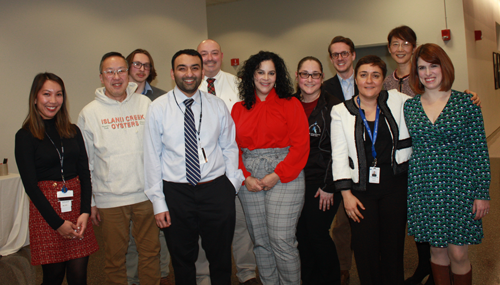
Pegah Afra, MD, of The Epilepsy Division in Neurology is pleased to share they are growing the clinical research in their program with new awards financing two clinical trials for the next five years.
Eligible patients with focal onset epilepsy now have the opportunity to participate in clinical trials of XEN1101 as adjunctive therapy or repeated daily sessions of transcranial cathodal direct current stimulation (tDCS) with the STRATSTIM device.
 The UMass HDSA Center of Excellence Partner Site, under the leadership of Dr. Anindita Deb, will continue to be supported for 2024 to provide high-quality multi-disciplinary care to Huntington's disease patients in the Central and Western MA region.
The UMass HDSA Center of Excellence Partner Site, under the leadership of Dr. Anindita Deb, will continue to be supported for 2024 to provide high-quality multi-disciplinary care to Huntington's disease patients in the Central and Western MA region.
For more information, see the HDSA news update here:
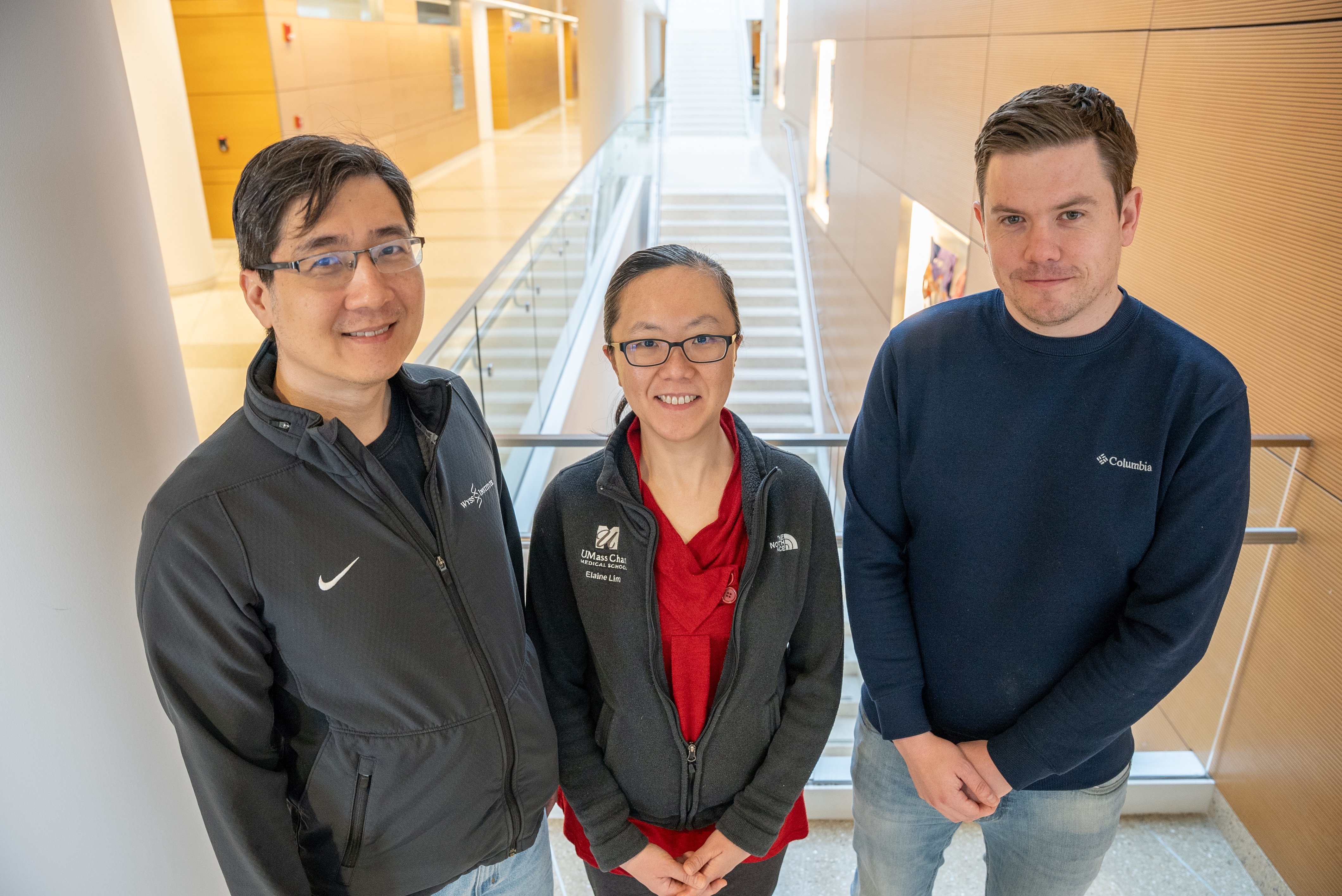 Effects of SARS-CoV-2 infection on neurodegenerative disease pathology. In February 2024, Rigel Chan, PhD, Elaine Lim, PhD, Fiachra Humphries, PhD, of UMass Chan Medical School and Benjamin Readhead, PhD, of Arizona State University have received the PolyBio research grant as part of their long covid research program. Learn more here.
Effects of SARS-CoV-2 infection on neurodegenerative disease pathology. In February 2024, Rigel Chan, PhD, Elaine Lim, PhD, Fiachra Humphries, PhD, of UMass Chan Medical School and Benjamin Readhead, PhD, of Arizona State University have received the PolyBio research grant as part of their long covid research program. Learn more here.
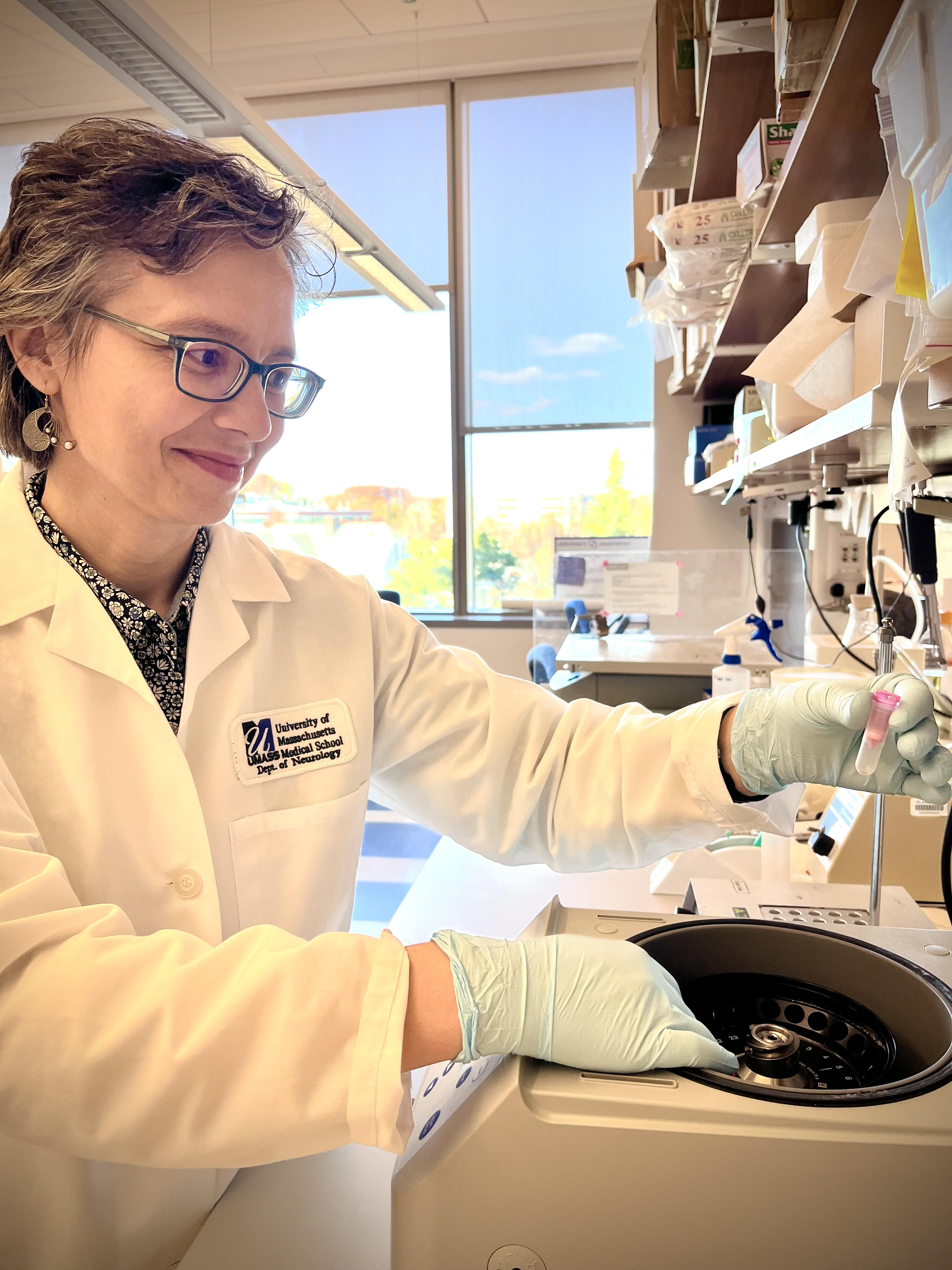 In October of 2023, Sandra Almeida, PhD, of Almeida Lab received a grant from the National Institute of Aging (NIA) to develop an iPSC-derived neurovascular unit to study the different causes leading to the loss of the progranulin protein contributes to FTD. This endeavor will also include developing a platform model to identify and characterize disease-relevant phenotypes.
In October of 2023, Sandra Almeida, PhD, of Almeida Lab received a grant from the National Institute of Aging (NIA) to develop an iPSC-derived neurovascular unit to study the different causes leading to the loss of the progranulin protein contributes to FTD. This endeavor will also include developing a platform model to identify and characterize disease-relevant phenotypes.
This funding will also allow her to devise ways to reverse the effects of the loss of the progranulin protein. She will seek methods to boost progranulin levels in human cells relevant to FTD restoring them to health to delay disease progression and neurodegeneration.
 Brian Silver, MD, and Vice Chair of Clinical Operations in Neurology, in collaboration with Tracey Madson, MD, PhD, FAHA, FACEP, from Brown University, School of Public Health has received a grant from the National Heart, Lung, and Blood Institute.
Brian Silver, MD, and Vice Chair of Clinical Operations in Neurology, in collaboration with Tracey Madson, MD, PhD, FAHA, FACEP, from Brown University, School of Public Health has received a grant from the National Heart, Lung, and Blood Institute.
The grant will investigate, The Role of Sex Hormones in Stroke Risk: A Sex-Specific Integrative Omics Analysis in the NHLBI Trans-Omics for Precision Medicine Cohorts.
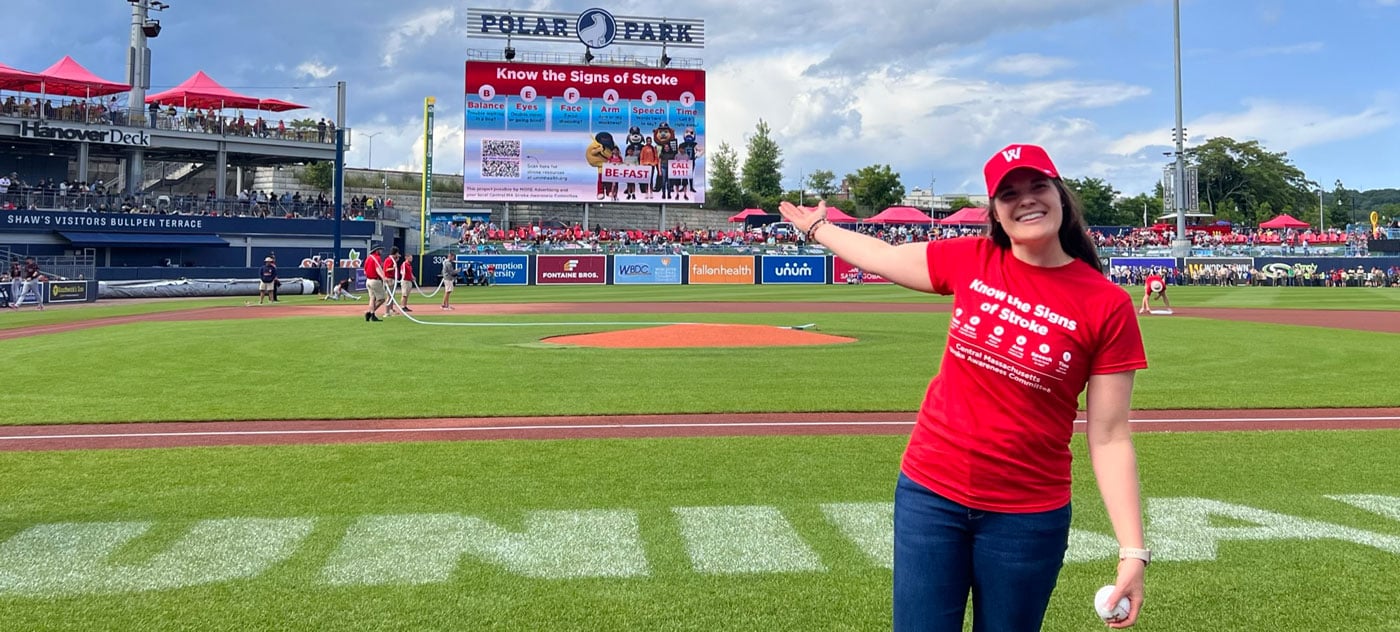 The Stroke Public Awareness Collaboration Project made possible with Massachusetts Public Health and MORE Advertising, increased their grant award for the Start on the Street event for UMass Memorial Health.
The Stroke Public Awareness Collaboration Project made possible with Massachusetts Public Health and MORE Advertising, increased their grant award for the Start on the Street event for UMass Memorial Health.
The “BE-FAST” stroke awareness campaign empowering children with tools for recognizing and responding to stroke symptoms, received a second innovative grant to purchase additional BE-FAST stroke education magnets and 10 blood pressure cuffs for the event.
